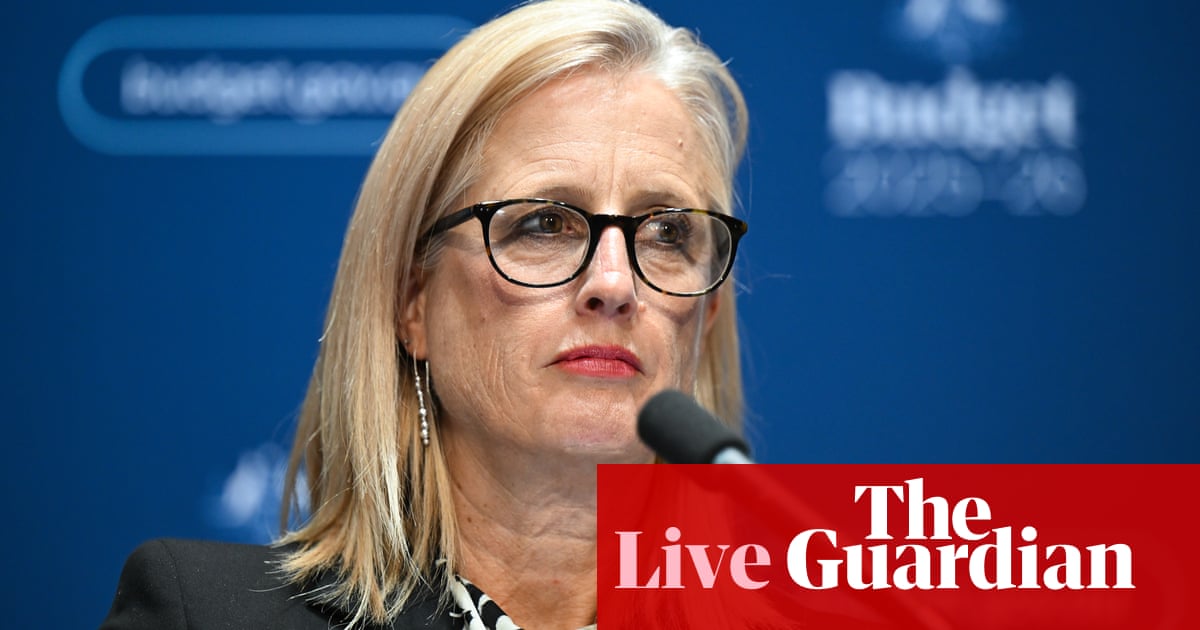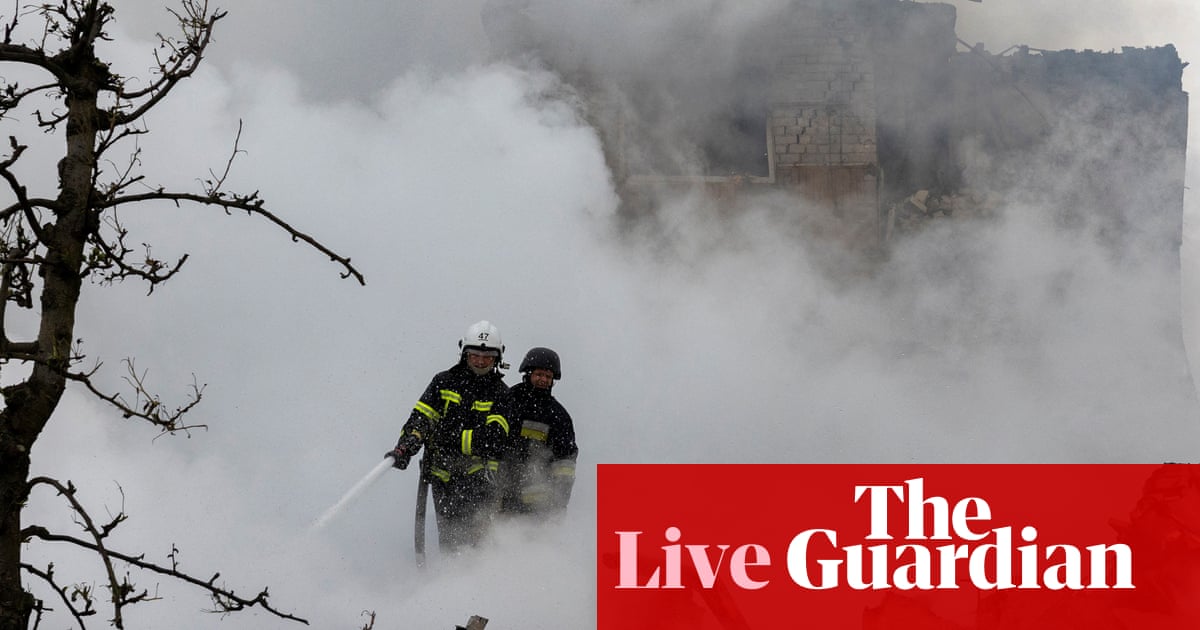Labor announces financial protections for domestic violence victim-survivors if elected
Labor has announced it will help protect victim-survivors of domestic violence from financial abuse through tax, superannuation and social security debts, if elected on 3 May.
The minister for finance and women, Katy Gallagher, announced the women’s platform in a speech earlier today. The measures include:
-
Preventing perpetrators from using the tax and corporate systems to create debts as a form of coercive control and make perpetrators accountable for these debts if they do;
-
Looking at making perpetrators liable for social security debts incurred by a victim-survivor due to coercion or financial abuse; and
-
Looking at methods of stopping perpetrators of domestic and family violence from receiving their victim’s superannuation after death.
It follows a push by advocates to protect women and children suffering financial abuse at the hands of a partner. It also comes after a report from a Labor-chaired Senate inquiry into financial abuse that was handed down to the government in December.
That inquiry made 61 recommendations, including creating a mechanism co-eddesign with victim-survivors of financial abuse to help implement legislative, regulatory and sector-driven reforms.
Key events
Pictures from the remote pre-poll centre at Pirlangimpi on Melville Island
As we’ve flagged earlier, pre-polling has opened across the country today – including at the remote polling station at Pirlangimpi on Melville Island in the Northern Territory.
The Australian Electoral Commission says remote voting teams “usually consist of three to four polling officials”:
They travel by car, plane, helicopter, or boat to many remote communities to collect people’s votes. Many of the places these teams visit are in the Northern Territory, Western Australia, and Queensland. Teams visit hundreds of remote communities nation-wide, many of these being remote Aboriginal and Torres Strait Islander communities.
Here are some photos from Melville Island today:
Watch: The election campaign reaches the pointy end as early voting opens
After a brief Easter weekend pause in campaigning, things are revving back up.
And while there are two more leadership debates still to take place, voters are going to start switching off — early voting opened today, and with the Australian Election Commission estimating around half of voters will cast their ballot early, the parties need to home in on their messaging asap.
Krishani Dhanji catches you up on the campaigns with 11 days to go until 3 May:
Candidate’s support for foreign aid highlighted ahead of election
The Australian Council for International Development (Acfid) is continuing to call on all parties and candidates to commit to increasing Australia’s aid budget from 0.65% to 1% of the federal budget, in the lead-up to the election.
Acfid has today launched three podcast episodes with the international development minister, Pat Conroy, the deputy leader of the Greens, Mehreen Faruqi, and Warringah’s independent MP, Zali Steggall, highlighting each of their positions on foreign aid.
In a statement, Acfid said the Coalition declined to appear on the podcast. The organisation’s interim CEO, Matthew Maury, said:
As the election date approaches, Acfid continues to call on all parties and candidates to commit to increasing Australia’s aid budget from 0.65% to 1% of the federal budget.
We can address our domestic challenges and support our neighbours simultaneously. The same factors driving the cost-of-living crisis here are causing severe poverty and instability abroad.
By lifting our modest aid budget from 0.65% to just 1% of the federal budget, we can strengthen regional stability, unlock new economic opportunities, and still ensure that 99% of the budget remains focused on domestic priorities.

Lisa Cox
Santos wins final approval for Barossa gas project as environment advocates condemn ‘climate bomb’
Santos has received federal approval to commence production from its Barossa offshore gas field off the coast of the Northern Territory.
The National Offshore Petroleum Safety and Environmental Management Authority (Nopsema) decided to accept the environment plan for the project’s production operations. It marks the final approval required for the project, clearing the way for the gas giant to extract and pipe the gas to Darwin.
The development is projected to add more than 270m tonnes of heat-trapping CO2 to the atmosphere over its life once the gas is sold and burnt overseas. Gavan McFadzean, the Australian Conservation Foundation’s climate change and clean energy program manager, said:
This is Australia’s dirtiest gas project and it should never have been given the green light.
You can read the full story on this below:

Emily Wind
Good afternoon! Emily Wind here, I’ll be with you here on the blog for the next few hours – and for the leaders’ debate later on tonight.

Krishani Dhanji
Thank you all for following along on the blog with me today.
I’ll leave you with the wonderful Emily Wind who will take you through the afternoon, and bring you live updates of the third leaders debate tonight.
I’ll catch you here bright and early tomorrow!
Superannuation advocates welcome Labor pledge to crack down on financial abuse
Labor’s promise to crack down on financial abuse has been welcomed by the Super Members Council, who say closing legal loopholes will help to protect victims of family violence.
The council has been calling on the government to reform legislation to make it harder for an abuser to receive a victim’s superannuation death benefit. At the moment, the abuser can receive that benefit unless they are the direct cause of that person’s death.
They’re also calling on the opposition and independents to match the commitment.
The deputy CEO of the council, Georgia Brumby, says perpetrators “should not profit from their crimes”:
A perpetrator getting their victim’s super death benefit is an extension of the abuse. The intention to introduce these reforms is a critical step towards ensuring that people’s superannuation is protected and not used as a financial reward for perpetrators … Perpetrators should not profit from their crimes.
The government has said today it will “look at” how to stop perpetrators of family violence receiving that.
Dutton makes brief remarks after attending mass at St Mary’s Cathedral
Peter Dutton made brief remarks outside St Mary’s Cathedral in Sydney following a mass.
Dutton said it was “appropriate” that there was no campaigning during the day and didn’t take any questions from reporters.
I am very humbled to have been here as part of this service.
He and Anthony Albanese will appear together tonight for the third leaders debate.
Labor announces financial protections for domestic violence victim-survivors if elected
Labor has announced it will help protect victim-survivors of domestic violence from financial abuse through tax, superannuation and social security debts, if elected on 3 May.
The minister for finance and women, Katy Gallagher, announced the women’s platform in a speech earlier today. The measures include:
-
Preventing perpetrators from using the tax and corporate systems to create debts as a form of coercive control and make perpetrators accountable for these debts if they do;
-
Looking at making perpetrators liable for social security debts incurred by a victim-survivor due to coercion or financial abuse; and
-
Looking at methods of stopping perpetrators of domestic and family violence from receiving their victim’s superannuation after death.
It follows a push by advocates to protect women and children suffering financial abuse at the hands of a partner. It also comes after a report from a Labor-chaired Senate inquiry into financial abuse that was handed down to the government in December.
That inquiry made 61 recommendations, including creating a mechanism co-eddesign with victim-survivors of financial abuse to help implement legislative, regulatory and sector-driven reforms.
Peter Dutton pays respects to Pope Francis in Sydney’s St Mary’s Cathedral
Peter Dutton has attended a mass at St Mary’s Cathedral in Sydney this afternoon.
Dutton started the day in Orange, in regional NSW, before coming to Sydney to pay his respects to Pope Francis and the Catholic church.
Both leaders are now in Sydney to prepare for their third televised debate on Channel 9 tonight.
Pollsters tell press club Greens and independents most popular among young voters
Over at the national press club today, pollsters have taken over the stage, talking about the generational shifts Australia is seeing and how the parties are reacting.
Unsurprisingly, as we’ve been hearing more recently, the Greens are far more popular amongst Gen Z and millennials and the new emerging independents are fracturing votes that would normally go between the two major parties.
Kos Samaras, a pollster at Redbridge, said the major parties, and particularly the Coalition, are struggling to win back votes that they’ve lost:
Within Gen Z, our most recent analysis where we’re just surveying Liberal versus Labor contests – the Greens primary is the highest at 33%. Higher than Labor, higher than the Liberal party.
Amongst the leaders themselves, Jessica Elgood, the director at Ipsos Public Affairs, says neither is actually winning the election. She says the question is: “Who is losing it faster?”
When I look at this current federal election polling data, it tells us that Australians don’t view either of the candidates as great politicians by this definition. There’s no sense of a clear new narrative. And it doesn’t suggest that either of them are actually winning the election.
[The] question is who is losing it faster … from our data, we see that Peter Dutton’s approval rating sitting at 27. Clearly our relationship with politicians has changed over the decades, but it’s the lowest approval rating we have measured for an opposition leader this century.
How is the polling data looking for Anthony Albanese? Well, it’s not much better. At the end of his first term, only a third of the country think he’s on the right track.
Katter MP says potential breach of alcohol ban an accident

Andrew Messenger
A Katter MP who posted a photo of himself apparently drinking a banned alcoholic beverage on an island in North Queensland says he wasn’t aware it was prohibited.
The photo, posted on Nick Dametto’s official Facebook page on Good Friday, shows him holding a can of full-strength Great Northern beer on Curacao Island with other people.
The entire LGA is covered by an alcohol management plan banning drinks over 4% alcohol by volume. The Great Northern original lager is 4.2% strength.
“If any rules have been broken here, if any, it’s been done by pure mistake and an honest mistake,” he said.
Dametto said the island is unpopulated and virtually empty with no signs that warn of the ban. He wasn’t aware it was in the Palm Island local government area, he said.
If you’re on Orpheus Island, only a kilometre away from one of the outskirt islands of the Palm Island group, you’re allowed to have whatever you like. Travel 500 metres to a kilometre the other way, and you fall under these draconian regulations.
Alcohol management plans have been enforced in discrete Aboriginal and Torres Strait Islander communities across Queensland since 2003. Currently they are in effect in 15 local government areas.
Dametto said it was “ridiculous” that the government still imposed what he said was a “discriminatory” ban on alcohol in Indigenous communities.
I think that all Australians should be treated the same. All adults should be treated the same, and you should have the right to make a decision whether or not you want to consume a certain type of alcohol or not.

Henry Belot
Coalition to relaunch regional fund Labor criticised as ‘giant rorted slush fund’
The Coalition will relaunch a regional grants program that provided Liberal-held seats with twice as many grants as Labor electorates, according to the national audit office.
The Building Better Regions fund was strongly criticised by Labor as an example of alleged pork-barrelling and was described by one MP as a “giant rorted slush fund”.
A 2022 review by the audit office found “funding decisions were not appropriately informed by departmental advice and the basis for the funding decisions has not been appropriately documented”.
In 2021, the former deputy prime minister, Barnaby Joyce, said “I don’t care” in response to Labor claiming $300m of regional grants under the scheme were examples of “pork-barrelling”.
In a statement, Nationals senator Bridget McKenzie made no reference to Labor’s criticism of the scheme, instead accusing the Albanese government of ignoring regional towns:
There is a clear need to bring back the [fund] after Labor axed more than $10bn worth of regional programs on coming to office.
Labor’s regional economic development programs have been beset by chronic delays, vague criteria, inconsistent assessment processes and poor communication with communities.
Applicants to Labor’s programs have had to wait more than 18 months from submitting applications in August 2023 to receiving contract agreements in January 2025, and the states have been imposed as ticket-clipping middle-men creaming funds off the program that were intended for the regions.

Adeshola Ore
Victorian ankle bracelet trial for young offenders begins
Moving off the campaign trail for a moment…
A trial to fit alleged youth offenders in Victoria with ankle brackets as part of their bail conditions has begun.
The state’s attorney-general, Sonya Kilkenny, this morning said the Victoria’s children’s court and supreme court will now have the power to impose electronic monitoring as part of bail conditions.
The state government last year announced the trial involving 50 young offenders aged between 14 to 18 who are accused of serious crimes. The devices will alert authorities if an alleged offender is outside their address after curfew or enters an exclusion zone.
The state government’s bail crackdown, revealed earlier this year, has faced backlash from legal, human rights and Indigenous advocates.










